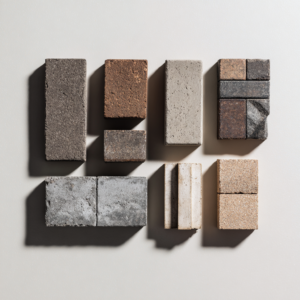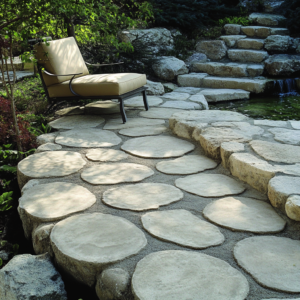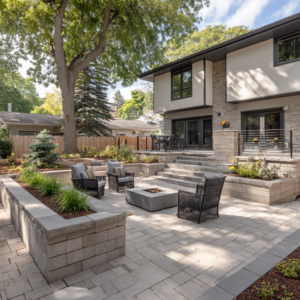When undertaking a hardscape project, such as installing a paver patio or walkway, one of the critical steps involves preparing the paver base. In this sense, “Can the paver base get wet?” is one of the most common questions homeowners ask us when it comes to it.
The base of a paver installation ensures stability and longevity for the project, becoming a common point of concern both among DIY enthusiasts and professionals in the hardscape industry. It is important to know if the paver base can get wet and how moisture affects the overall project.
So – can the paver base get wet or not? In this article, we want to answer this question and help you make the best possible decision for your project.
Read also: How much does it cost to have pavers installed in 2024?
Jump to:
Can the paver base get wet?
The short answer is yes, the paver base can get wet. However, the implications of moisture in the paver base depend on several factors.
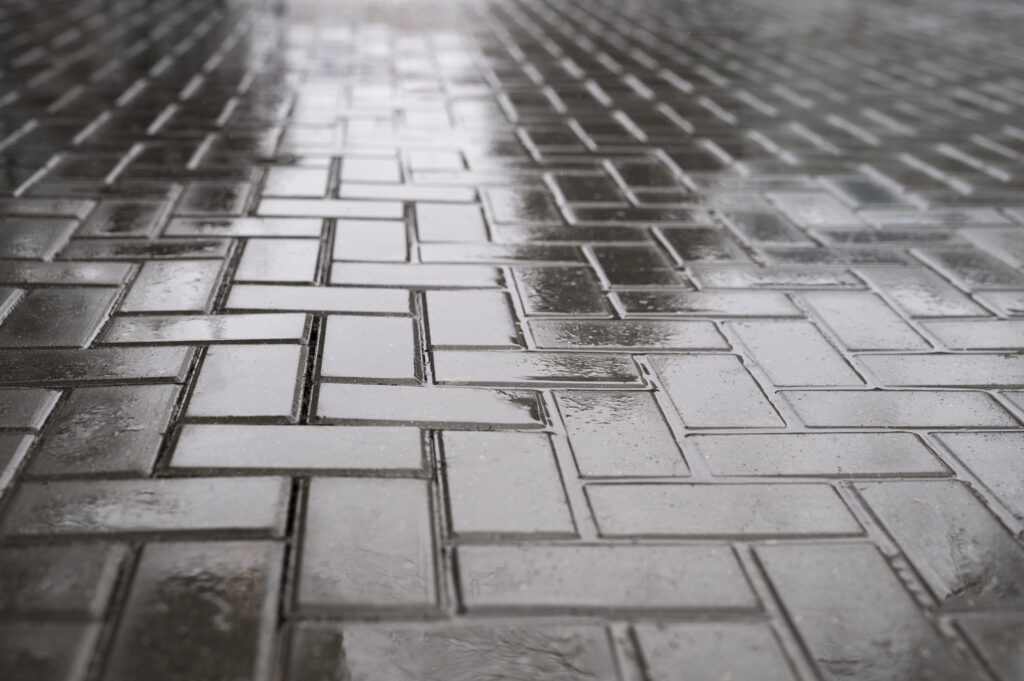
The most significant one is if you want your base to get wet, which is the case if you are going for a permeable installation. But if you’re not going for a permeable installation, you want to avoid your paver base getting wet at all costs.
The types of materials used during the installation and the stage of the installation process also influence the answer to this question, as we’ll see throughout the article.
Read also: How much do permeable pavers cost? A sustainable investment
Moisture in materials
The most commonly used materials for a paver base are gravel and sand – and each one deals with moisture differently.
Gravel, being composed of larger particles, typically allows for good drainage and does not retain much water. Sand, on the other hand, can hold moisture, which might affect its compaction and stability if it is excessively wet.
Crushed stone can also be used and provides a solid base due to its angular particles that lock together. Moisture can help with compaction, but too much water can lead to erosion and instability.
Similarly to crushed stone, recycled concrete aggregate (RCA) is also impacted by moisture but to a lesser extent due to its cementitious properties.
Stage of the installation
If the paver base gets wet before it is compacted, it can lead to issues with proper compaction. Excess water can create a muddy consistency, making it difficult to achieve the necessary density and stability.
However, slightly wetting the base materials during compaction can help achieve a more solid base. The water helps the particles settle and interlock more effectively. But be careful! The amount of water must be controlled to avoid saturation.
Once the base is compacted, it should ideally remain as dry as possible until the pavers are installed. Moisture at this stage can seep into the gaps, potentially leading to shifts or settling issues over time.
In a regular paver installation, once the pavers are installed and the project is completed, the paver base’s ability to manage water becomes crucial. Proper drainage systems must be in place to prevent water accumulation, which can lead to erosion or freeze-thaw damage in colder climates.
But, as we mentioned, that is not the case for a permeable installation. In some types of permeable installations, especially the ones that can store and recycle water, you actually want your pavers to absorb the water.
Managing moisture in paver installations
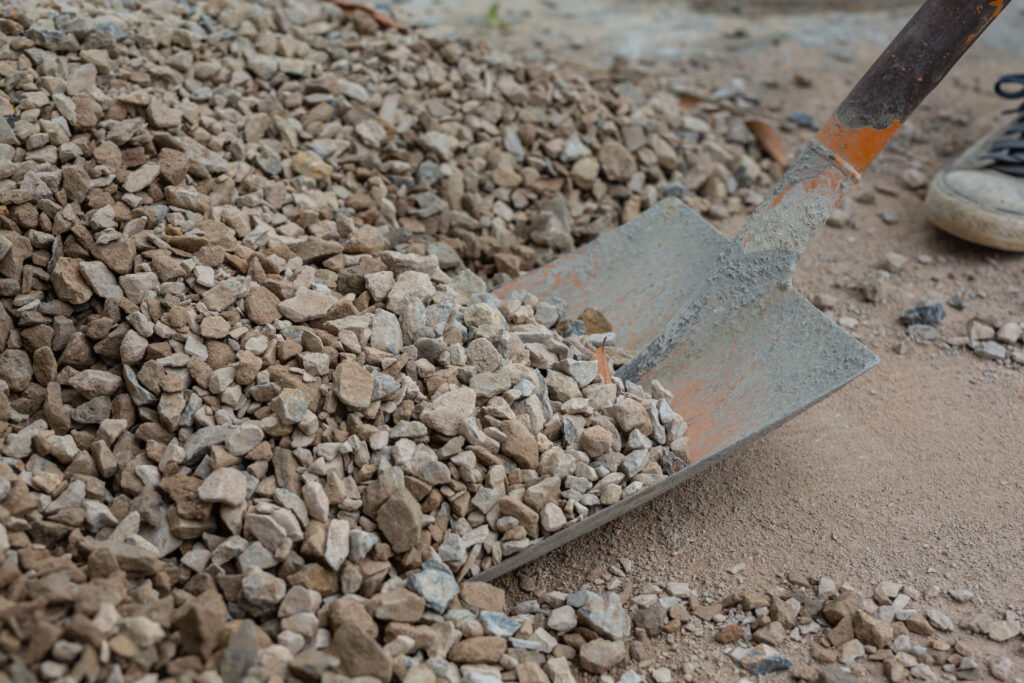
High-quality materials
One of the best practices to ensure that your pavers get as dry as possible is to use high-quality materials.
For starters, you should use a type of sand that is specifically designed for paver installations, called paver leveling sand. Other types of sand accumulate too much moisture and can’t hold a paver installation in the long run.
Still, in the base materials, choose crushed stone and gravel that have a good mix of particle sizes. This variety in particle size allows for better interlocking and compaction, which provides a more stable base.
Ensure the materials are clean and free of debris or organic matter, which can cause uneven settling and moisture retention.
Don’t miss: What to put between pavers? Choosing the right material
Compaction and drainage
Compaction is extremely important for good drainage and prevention of water accumulation in the installation.
Compact the base material in thin layers, typically about 2–3 inches at a time. This method ensures each layer is adequately compacted and prevents future settling issues.
As we mentioned, you can add moisture to the base material if it is too dry. The right amount of moisture helps bind the particles together during compaction, creating a denser and more stable base.
Use a plate compactor or roller to achieve the best results. Multiple passes with the compactor are often necessary to ensure uniform compaction.
As for the drainage, design your project with a slight slope, typically about 1-2%, to facilitate water runoff. This prevents water from pooling on the surface or saturating the base material. Consider installing additional drainage solutions such as perforated pipes, drainage tiles, or gravel trenches in areas prone to heavy water accumulation.
Protect the base during installation
Cover the base material with a tarp or plastic sheeting if rain is expected. Excessive moisture can turn the base material into mud, making compaction difficult and less effective.
Minimize foot traffic and equipment movement on the prepared base to avoid disturbing the compacted layers. If the base does get wet, allow it to dry out and recompact it if necessary before proceeding.
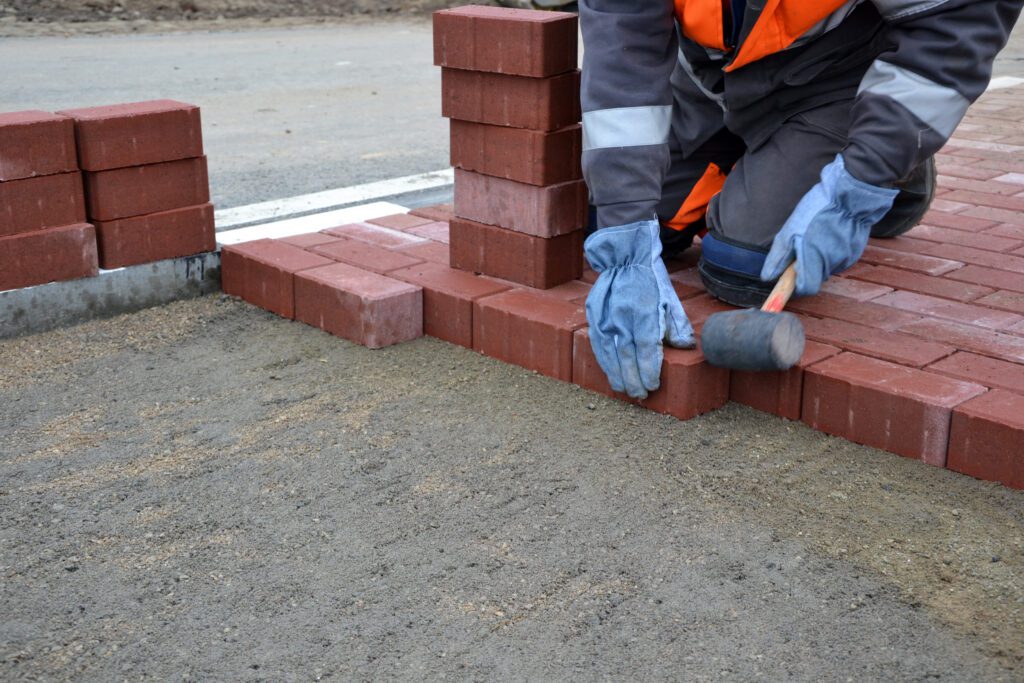
Professional installation
While the paver base can get wet, managing the amount of moisture is crucial for a successful paver project. Lightly damp conditions can aid in compacting the base material, but excessive water can compromise stability and delay your project.
By understanding the impact of moisture and following best practices for installation and drainage, you can create a durable and long-lasting foundation for your pavers.
And, of course, you can never go wrong when hiring professionals to help you with your installation. So look for professionals you can trust around your area to help you.
And if you happen to be around Sarasota County, FL, you can always count on us here at JS Brick. For 23 years we have been providing the region with the best services and materials when it comes to hardscape and paver installations.
Get in contact right now for a free estimate on our services.

